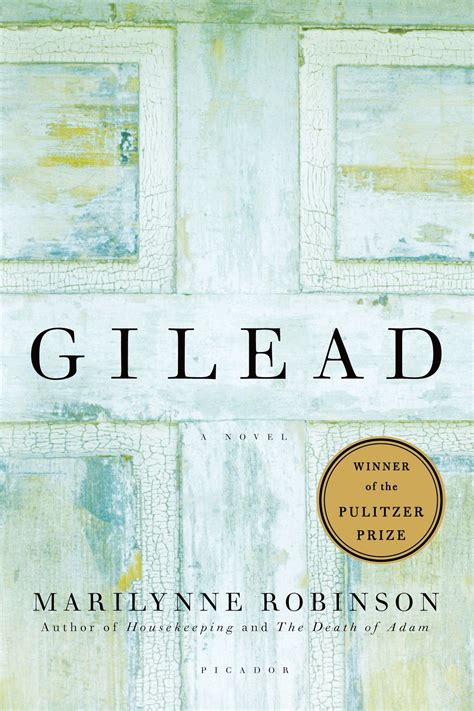Novel of Testimony
Gilead is a Pulitzer-prize winning novel from Marilynne Robinson. A meditation on morality, faith and trust, it’s a gripping and powerful read, a book with a voice that will stay with you. And yet, it is reflective and moves at deliberate pace. The book drew me in – as it has for many others.
Gilead is a first-person novel, told from the perspective of a aged dying pastor with a heart condition. He’s writing for his young son and as a way to come to grips with his family, its history, and the tensions that exist in the fictional small Iowa town called Gilead. That, by the way, is also the name of a place of testimony in the Bible. There’s nothing in this book that isn’t carefully thought through by Robinson. There’s great care in the narrative and the drawing of the people who inhabit the town.
The character who tells the story, John Ames, is a good man who feels down to his bones. He is flawed and aware of his flaws. He questions but is no doubting Thomas. At the same time he offers wisdom, understanding, and ultimately, forgiveness, at the personal level and as a way to lead a life. The way that he tells his story is a testimonial, a sharing that extends well beyond the superficial. Ames is a profoundly wise person, not in any sense from omniscience, but rather from his fully formed humanity.
Racism and its lengthy and violent history are never far from the characters or their histories. The story is set in the 1950s and Ames’s narrative extends to his grandfather’s life. Lynching and anti-black violence scar the Midwest and characters contend frequently.
My inclinations do not regularly run to reflections on religion. Nonetheless, the way that Robinson uses Ames to frame issues of faith engaged me. This is not an abstract novel about theological ideas divorced from the day-to-day; it is a reflective novel about how ideas and values are might be lived. It is a powerful meditation on how to think about faith and what it can mean to the conception of a good and meaningful life. That’s not a question just for philosophers or novelists.
After I finished and started reading about Gilead I learned that it is one of President Barack Obama’s favorite books. That, in and of itself, is more than enough of a recommendation.
David Potash
